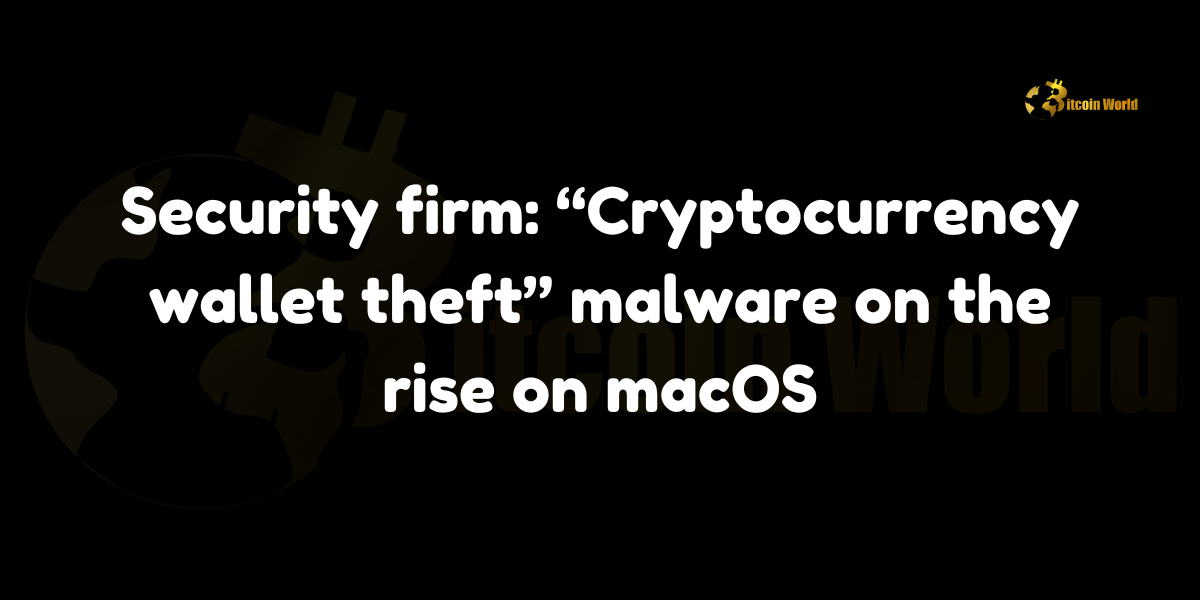Are you a macOS user involved in cryptocurrency? A new threat is emerging that you need to know about. It’s called Cthulhu Stealer, and it’s designed to steal your digital assets. This malware specifically targets macOS users, disguising itself as legitimate software to trick you into giving up your sensitive information. Let’s dive into what this means for you and how to stay safe.
What is Cthulhu Stealer and How Does It Work?
Cthulhu Stealer is a type of malware that masquerades as a trusted application. It tricks you into entering your cryptocurrency wallet passwords. Once it has these details, it can access your wallet and steal your funds. According to a report by Cointelegraph, citing analysis from security firm KadoSecurity, this malware is actively targeting users of popular wallets. Here’s a breakdown of how it operates:
- Disguise: Cthulhu Stealer pretends to be a legitimate application to gain your trust.
- Information Request: It prompts you to enter sensitive information, such as your cryptocurrency wallet passwords.
- Access and Theft: Once you enter the details, the malware gains access to your wallet and swiftly steals your funds.
The malware has been particularly active against users of these popular wallets:
- Coinbase
- Wasabi Wallet
- Electrum
- Atomic
- Binance
- Blockchain Wallet
Why is macOS Being Targeted?
macOS has traditionally been considered more secure than other operating systems. However, with the growing popularity of cryptocurrencies among Apple users, it’s becoming an increasingly attractive target for cybercriminals. The rise of Cthulhu Stealer highlights the need for enhanced security measures and increased user awareness. This malware is adept at evading standard detection mechanisms, making it even more dangerous.
How Can You Protect Your Digital Assets?
Protecting yourself from Cthulhu Stealer and similar threats requires a multi-faceted approach. Here are some actionable steps you can take:
- Only Download Software from Trusted Sources: Avoid downloading software from third-party websites or unknown developers. Stick to the official Mac App Store or the developer’s official website.
- Enable Two-Factor Authentication (2FA): This adds an extra layer of security to your cryptocurrency wallets. Even if a cybercriminal gets your password, they’ll need a second factor (like a code from your phone) to access your account.
- Regularly Update Security Software: Keep your operating system and security software up to date. These updates often include patches for the latest security vulnerabilities.
- Stay Informed: Knowledge is power. Regularly check for updates from security firms like KadoSecurity and follow trusted cryptocurrency news sources for the latest threat information.
- Be Wary of Phishing Attempts: Cybercriminals often use phishing emails or messages to trick you into giving up your information. Be suspicious of any unsolicited requests for your cryptocurrency wallet passwords or private keys.
The Importance of Vigilance
The threat landscape is constantly evolving, and malware like Cthulhu Stealer is becoming more sophisticated. It’s crucial for macOS users to remain vigilant and proactive in protecting their digital assets. By understanding the risks and implementing strong security practices, you can significantly reduce your risk of falling victim to these types of attacks.
In Conclusion
Cthulhu Stealer poses a real and present danger to macOS users involved in cryptocurrency. By staying informed, practicing good security hygiene, and using the tips outlined above, you can protect yourself and your digital assets. Don’t wait until it’s too late – take action today to secure your cryptocurrency wallets and stay one step ahead of the cybercriminals.
Disclaimer: The information provided is not trading advice, Bitcoinworld.co.in holds no liability for any investments made based on the information provided on this page. We strongly recommend independent research and/or consultation with a qualified professional before making any investment decisions.


